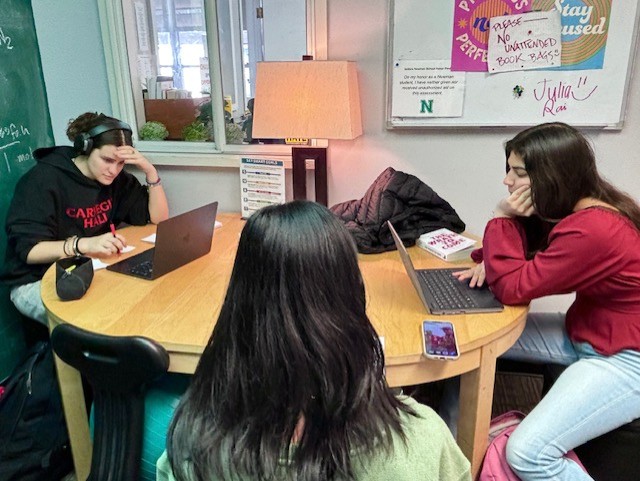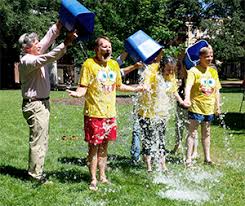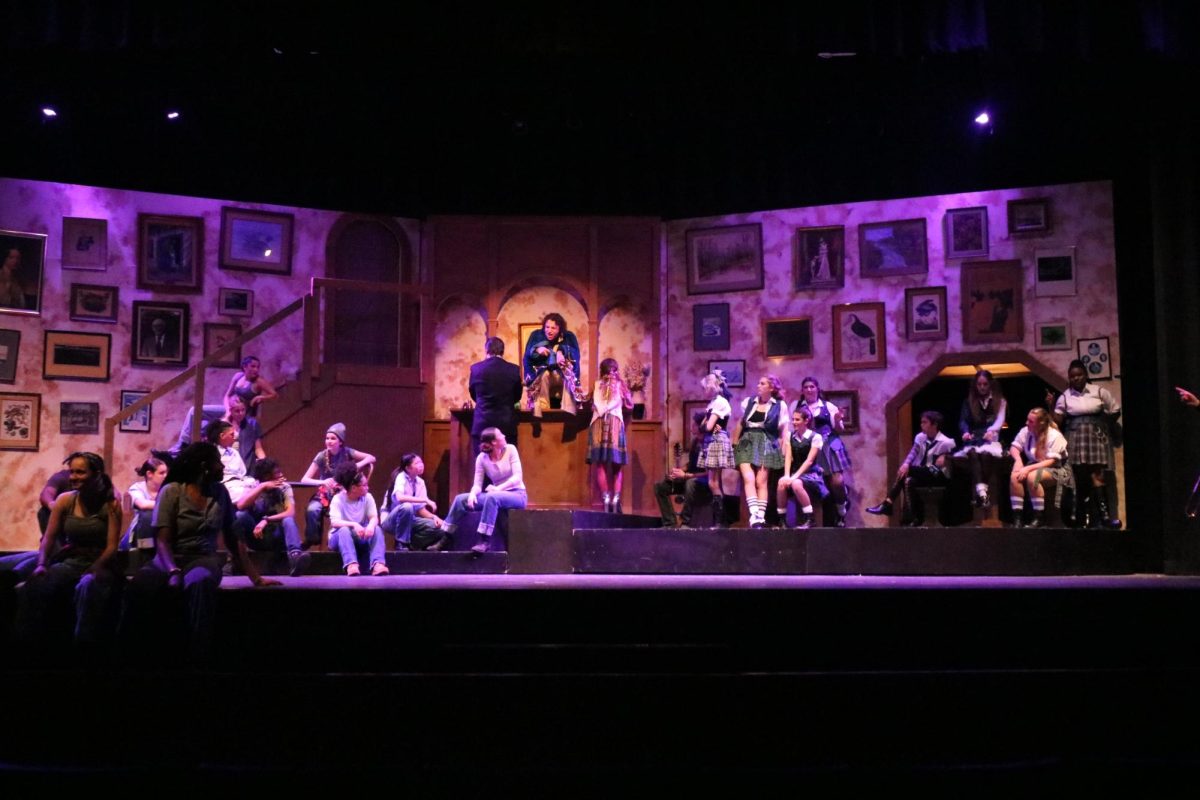Junior year. That dreadful period of your high school life packed with challenging courses, piles of schoolwork, and stress about your future college. Everyone’s heard that Junior year is the worst, but how much of this is actually true? We asked the Junior Class of 2026 to find out, and they have responded.
As voiced by the Junior Class, Science and English III are their most difficult classes. To be specific, for the majority of the students who said the broader Science subject was their most difficult core subject, that class is AP Chemistry. In order to stay calm with upcoming assessments, they recommend watching insightful videos and remembering to also not stay up too late. 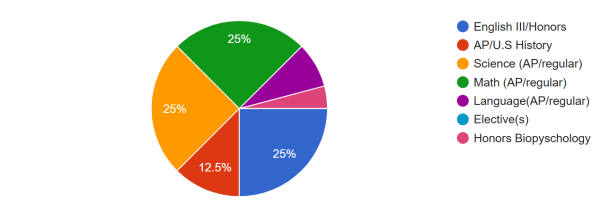
Most difficult classes voted by the Junior class
Staying up too late on a school night will cause students to be extremely tired and give them an abundance of stress over having to complete their assignments the following day. Additionally, staying up for a long time does not help with understanding information because of the induced exhaustion. The recommended amount of sleep for teenagers is 8-10 hours, but most Juniors (about 42%) get 5-7 hours of sleep each night. In fact, about 25% of Juniors have less than 5 hours of sleep. Students who understand classes like English III Honors are, understandably, used to striving for success. To help with work buildup, they recommended to use their scheduled free periods wisely and to not procrastinate. Holding off work is fun in the beginning, however, the workload eventually builds up and could incline students to resort to methods not in alignment with our core values!
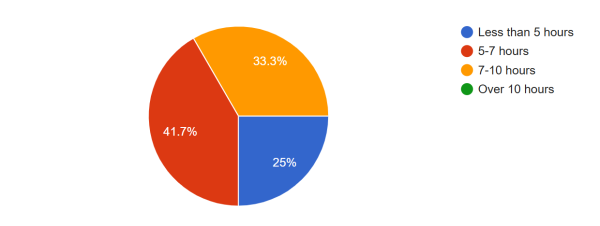 Average hours of sleep each night for the Junior class
Average hours of sleep each night for the Junior class
Our Juniors are especially busy, as most are balancing sports, clubs, social life, and more on top of their academics. Regardless, many still manage to find time to study, with over 50% of people spending 2-3 hours studying each week and 38% of people spending over 5 hours studying. For most, this means rewriting notes, reviewing flashcards, practicing problems, and watching review videos. Sites like Knowt, Quizlet, Khan Academy, and—last but not least—College Board are popular resources among students for studying.

Time spent studying each week for the Junior class
Harder classes lead to more workload, and keeping up with these courses means spending more time studying and doing homework. Approximately, 38% of people spend 2-3 hours on homework each night and 38% spend 3-4 hours on homework each night. To reduce stress-filled study sessions, Junior students advise people to be mindful of the amount of effort and work rigorous courses take, and they suggest taking advantage of extra help opportunities and seeking aid from teachers.
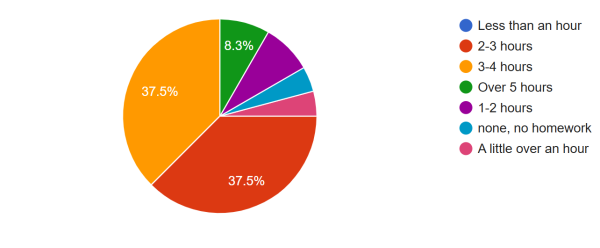
Time spent on homework each night for the Junior class
As fellow Juniors ourselves, we took this advice and decided to interview some teachers to learn further about their role, as members of the faculty and as helpful resources in students’ lives to cope with stress. One of our interviewees answered the question, What are some strategies a student can do in order to reduce their stress-levels, furthermore how can they manage their time? Dr. Hermann, who is a part of the science department, gave some insightful advice for the junior class; he states:
“Establishing a mental health routine can be very helpful, which would be something you do on a daily basis that is for your happiness. These can be writing, reading, spending time in nature, and spending time with friends. Having a level of balance between how much time they have to spend according to their own interests and friends, as much as they need to spend time on their school work.”- Dr. Hermann
He also introduced us to the idea that Newman has given the Junior class times of relief from stress by having Advisory. The Advisors for the Junior class are helpful resources for the students to look to for help and to have a connection with teachers. Additionally, he told us about how the Counselor is a wonderful faculty member to help keep stress levels stable.
We decided to ask our school counselor, another option for help concerning stress and school, on her perspective regarding the management of stress and concern for students. Ms. Corcoran gave insightful answers to each question, one being: As a faculty member, what are some strategies you’ve recommended for a student (when they are stressed out, etc.)? Ms. Corcoran talked about acknowledging your feelings instead of pushing them down and letting them build up. She gave an analogy about repressing these emotions: “your feelings are like a garden hose and as you stand on it the hose pressure then builds and builds or it shoots out all at once and causes damage”.
When asked the question: How do you think school and exams affect student’s mental health and how should students accommodate this? She discusses the pressure of Junior year as students are thinking about college and want to have good grades, but also highlights the importance of maintaining relationships. Participating in activities like running, painting, watching television, or another activity is a great way to clear your mind. She also recognizes these feelings are natural, while they may seem scary, they will prepare you later in life. However, if these emotions appear too strong then she recommends you meet with a trusted adult to express them.

